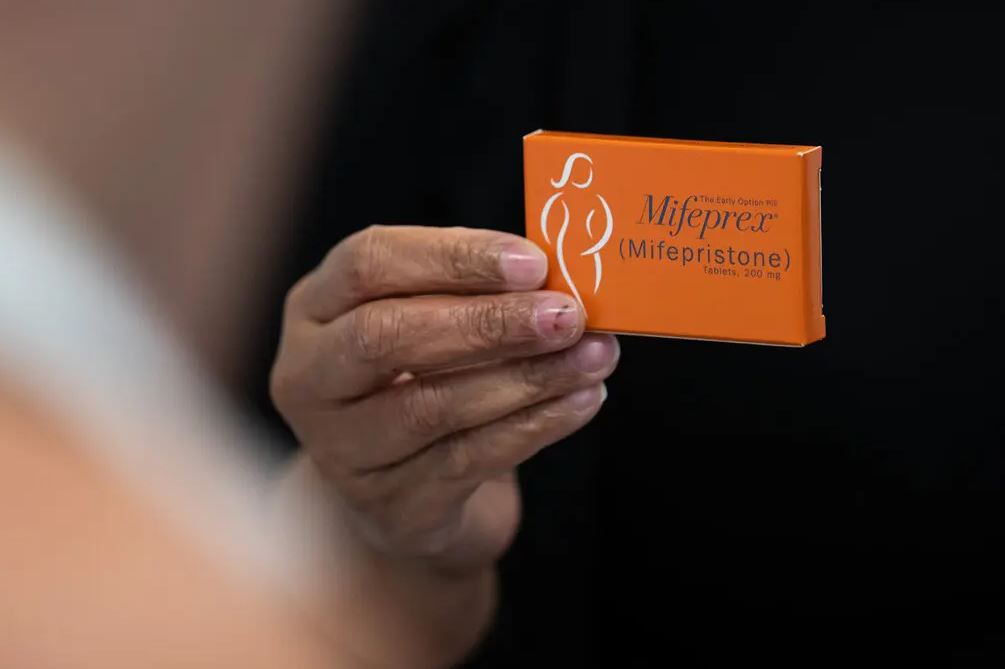After relegating abortion policy to the states less than a year ago, the Supreme Court is now preparing to hear arguments on whether the most frequent abortion procedure may be severely limited even in areas where it is still allowed.
The Justice Department stated on Thursday that it will seek emergency relief from the Supreme Court after a federal appeals court put many restrictions on the availability of an abortion medication late Wednesday night.
The three-judge panel of the Fifth Circuit Court of Appeals in New Orleans issued a decision that allowed mifepristone to stay on the market while the case launched by anti-abortion organisations against the Food and Drug Administration worked its way through the courts.
Judge Matthew J. Kacsmaryk of the Northern District of Texas ruled last week that the F.D.A.’s approval of mifepristone in 2000 was invalid and that the medicine should be removed from the market; the panel partially disagreed with this finding in its opinion.
However, the panel voted against a number of measures the F.D.A. has taken in recent years to expand patient access to the medicine, such as permitting it to be mailed and prescribed by non-doctors.
The appeals court said that its decision would remain in effect until the matter could be heard in its entirety.
On Thursday afternoon, though, a federal court granted an injunction in another mifepristone case requiring the F.D.A. to refrain from restricting access to the medicine throughout most of the nation.
Those additional FDA regulations on mifepristone were challenged in a lawsuit brought by Democratic attorneys general in 17 states and the District of Columbia. Last Friday, Obama appointee Judge Thomas O. Rice of the U.S. District Court for the Eastern District of Washington prohibited the FDA from limiting access to mifepristone in those areas.
On Thursday, he reiterated his support for that ruling, saying the FDA “must follow” it “irrespective” of the Fifth Circuit Court of Appeals’ decision.
Experts in the law say it’s possible the Supreme Court may have to settle the status of the abortion pill because of the conflicting decisions from lower courts.
The present lawsuit, on the other hand, shows that opponents of abortion continue to see the court as their most formidable ally by challenging the scientific judgement of the pill’s safety made by an administrative body.
Contrasted with the constitutional issues addressed in the Dobbs judgement, the appeals court’s reasoning mostly relied on general principles of administrative law. The current case, however, shows that the justices will remain involved in legal conflicts over abortion.
Within a few days, they will issue a ruling on the emergency application submitted by the Biden administration. Their decision may reinstate full access to the pill, uphold the limits established by the appeals court, or halt access completely, as a federal judge in Texas did. The justices will be further embroiled in a battle they previously claimed to have abandoned if the appeal proceeds to a judgement on the merits, as is likely to happen.
The appeals court did not weigh in on all of the safety claims, but it did rule that the FDA “cannot deny that serious complications from mifepristone” occur and that the agreement form that the FDA has patients sign acknowledges that there are risks associated with the treatment. The court also found that the FDA’s comparison of mifepristone’s safety to that of ibuprofen was erroneous. “F.D.A.’s own documents show that mifepristone bears no resemblance to ibuprofen,” the court said.
The appeals court also appeared to agree with the plaintiffs that it is illegal to ship abortion pills due to the Comstock Act, which was passed in the 19th century. According to a new Justice Department memorandum, sending abortion drugs over the mail is prohibited only if the sender has knowledge that the recipient would use them for an illegal abortion.

